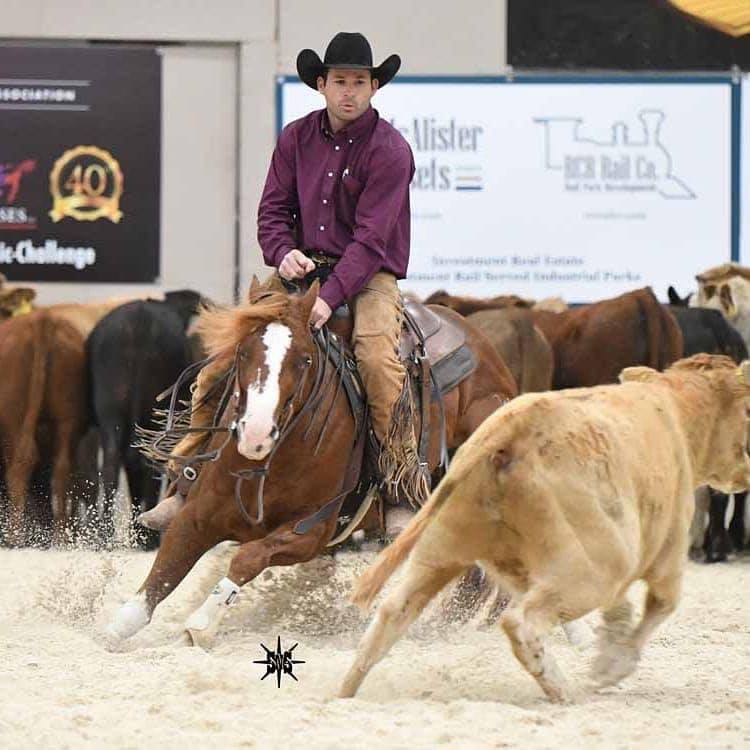
As a horse owner, the well-being and performance of your equine companion are of paramount importance. To delve into the significance of veterinary care in maintaining a horse’s optimal health and performance, we sat down with Jade Keller, an experienced performance horse trainer, to gain his insights into how regular veterinary care is instrumental in achieving success in the competitive world of equine sports.
H&R: As a performance horse trainer, how important is regular veterinary care to the basis of your training?
Jade: It’s very important. We haul to shows about every other week throughout the year. When we return from a show, we have our veterinarians examine our horses to ensure they’re performing at their best. Catching problems early is key. Regular veterinary care provides a safety net that allows us to address issues before they become major obstacles.
H&R: What are some tips you have for building a solid working relationship with your veterinarian?
Jade: Communication is vital. I prioritize honesty and avoid pushing the horse to work if it’s unsound. Trust between the trainer and the veterinarian is crucial for success. I often discuss the horse’s condition and performance with my vet, and we collaborate to make informed decisions.
H&R: What behavioral signs would lead you, as a horse owner, to consider talking to your veterinarian?
Jade: If a horse exhibits behavioral changes like irritability, tail-ringing, or discomfort during rides, it’s often indicative of internal issues, possibly ulcers. Visual unsoundness or head bobbing also warrant a vet’s attention. These changes can be subtle, so it’s essential to be vigilant.
H&R: Do you utilize or are familiar with any blood or genetic tests horse owners should be aware of when addressing behavioral issues?
Jade: We frequently run blood work to assess the horse’s overall health and nutritional status. The specifics of these tests depend on the vet’s recommendation. I rely on my veterinarian’s expertise to determine the most appropriate tests for each situation.
H&R: How does a trainer determine if a behavioral issue should be addressed with training versus veterinary treatment?
Jade: Knowing your horse is key. Familiarity allows you to distinguish between a training issue and a veterinary concern. For new horses, we often involve the vet right from the start. If the horse’s behavior doesn’t improve with training or seems tied to physical discomfort, veterinary intervention becomes a priority.

H&R: What are the most common behavioral issues that require veterinary intervention, and what are the initial signs?
Jade: Ulcers are a common issue. Signs include irritability, ringy tails, and dull appearances. Addressing ulcers early is crucial. Beyond ulcers, we watch for changes in attitude and performance, such as reluctance to work, as these can signal underlying problems.
H&R: Apart from behavioral signs, what else should horse owners look out for in regard to their horse’s performance and overall health?
Jade: Horse owners should be visually aware of their horse’s condition. Changes in coat quality, weight, demeanor, and eyes can indicate potential issues. Early recognition is key. Regular assessments of body condition and soundness during daily care routines can help identify subtle changes.
H&R: What factors do you keep in mind when looking at treatment options for issues affecting performance?
Jade: Balancing cost, efficacy, and long-term effects is crucial. We aim to maintain the horse’s health without overdoing treatments. Preserving joints and other structures is a top priority. A horse’s long-term well-being is at the forefront of our treatment decisions.
H&R: How important is overall joint health for the longevity of your horse in your discipline?
Jade: Joint health is vital. We x-ray potential purchases to ensure they’re fit. Starting with a healthy horse makes it easier to maintain their well-being throughout their career. By prioritizing joint health and practicing preventive measures, we can help horses enjoy extended, successful careers.

In this Q&A with Jade, we’ve uncovered the crucial role of veterinary care in the success of horses in the competitive world of equine sports. Regular veterinary check-ups, early recognition of behavioral changes, and prudent treatment choices all contribute to a horse’s longevity and high-level performance. To ensure your horse’s success, prioritize their health through a robust partnership with a trusted veterinarian. After all, a healthy horse is a winning horse.






